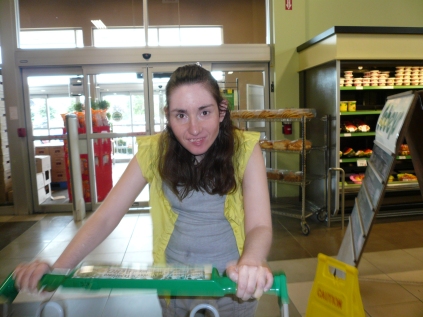By Michelle Friesen

I was touched to read about, Cathy and Moe Chauvin, and their son Joe in a news article written by reporter Sharon Hill in The Windsor Star on March 18, 2013. Here is the link to Joe’s story if you would like to read it: http://blogs.windsorstar.com/2013/03/15/turning-18-means-end-of-dream-for-joe-chauvin/
Ms. Hill did an excellent job expressing what the Chauvin’s want for Joe and in turn want many of us want for our sons and daughters . . . . an everyday, ordinary life.
As I read The Windsor Star article, I could see Joe’s dream. I could see him inside a greenhouse (yet to be built by his father) with a support worker planting his seeds. I could see his amazing smile as customers stopped along the lazy highway. I could picture him at the church hall making tourtieres with the other volunteers – keeping them all laughing.
As a family, Cathy and Moe and their adult children have given lots of thought to Joe’s future. Knowing his passion for the farm and his love for his francophone community, together with Joe, they envisioned some important roles for him as an adult citizen – farmer, entrepreneur and strong contributor in his francophone town.
Like the Chauvin’s, for many of us, this means no expectations beyond the simplicity of what it would take to support our family members to participate fully as they ‘access’ their neighbourhoods and communities.
The government of Ontario sees itself as a leader in accessibility, ensuring that businesses, not-for-profit organizations and publicly funded places are accessible for people with disabilities. http://www.mcss.gov.on.ca/en/mcss/programs/accessibility/index.aspx
According to the ‘Making Ontario Accessible’ web-page, “Creating a province where every person who lives or visits can participate fully makes good sense — for our people, our businesses and our communities.” For Joe to participate fully, now and when he leaves high school, accessibility to his community means direct funding to pay a support worker.
One of the keys for a citizen living with significant disability to participate fully and stay healthy emotionally and physically, in addition to friends and relationships, is often funding to pay a support worker or personal assistant. Parents do get older, and that means we are not as able and fit as when our children were younger.
For families supporting their family members at home, these are discouraging times. Money is tight and our government has not been able to provide new funding for children born with a disability, or those newly diagnosed as pre-schoolers. Our government has not been able to provide support funding for individuals with developmental disabilities who have completed school. It has not been able to provide direct funding for older adults to create their own home life – putting a hold on innovative, individualized residential funding a few years ago. It is refreshing to hear that some families, like the Chauvin’s, are still able to articulate their son’s dream – despite the recent news that all funding and supports will be cut-off at 18 years of age.
One can only hope that the set-backs that Joe is encountering will be short-lived. Is it blind faith to believe that Ontarians, including those we have elected, will see hope in the fact that there are other Joe’s out there, that there are other Cathy and Moe’s out there – families who are part of their son or daughter’s support team? This dedication to family members does offer great hope for the future and deserves support. As parents, sisters and brothers, many of us want to contribute to our loved ones’ lives. They simply require more assistance than we can provide.
For Joe it is about continued health support and receiving adequate funding to pay a support worker so that he can participate and contribute in the many ways he already is, and the many that are to come. For someone else it may be about post-secondary education or courses from the local college. Everyone is different – that is the beauty of having direct funding for those who choose this route – it supports the passions, interests and contributions of each individual.
 At 32 years old, despite living with multiple disabilities and complex medical needs for more than three decades, my beautiful daughter, Lisa, has been able to ‘access’ her community as a participating citizen. She has spent meaningful moments doing what she loves: swimming, visiting her grandmother, eating at her favourite restaurant, or wheeling down the neighbourhood walking trail. She meets her responsibilities by picking up groceries for her self-contained apartment (in our home) or making copies and purchasing supplies at Staples.
At 32 years old, despite living with multiple disabilities and complex medical needs for more than three decades, my beautiful daughter, Lisa, has been able to ‘access’ her community as a participating citizen. She has spent meaningful moments doing what she loves: swimming, visiting her grandmother, eating at her favourite restaurant, or wheeling down the neighbourhood walking trail. She meets her responsibilities by picking up groceries for her self-contained apartment (in our home) or making copies and purchasing supplies at Staples.
Lisa’s ‘ordinary life’ is possible because at a different point in time, the Ontario government allocated individualized funding in order to pay support workers to assist her. She has also had the assistance of an independent facilitator since entering ‘adulthood’, someone who facilitates the discussions, planning and changes in her life along with her family and friends, and at times her support team. We have faith in her network of family and friends and her facilitation for the future – knowing we are getting older and more tired – this is a good thing.
In Ontario, there are many individuals with disabilities, living at home, who would like direct funding to participate fully in their communities with the assistance of a support worker. The good news: to support the children and adults in their homes who have been waiting and waiting and wanting direct funding – it would cost each of us in Ontario only six cents per day.
We would like to see our family members who have a disability living an everyday, ordinary life in their neighbourhoods and communities. Wouldn’t you?
Like us on Facebook: http://www.facebook.com/pages/Everyday-Ordinary-Life/547885258572935
 The Kathie Snow article that Janis wanted to share with us is timely. It challenges readers to view the need for assistive technology, supports and accommodations – something we all have in our life – as ordinary. The last paragraph in this article is my favourite. I don’t want to give away the ending so I would encourage you to consider checking out the PDF of the No, Not “Special” article and reading it for yourself.
The Kathie Snow article that Janis wanted to share with us is timely. It challenges readers to view the need for assistive technology, supports and accommodations – something we all have in our life – as ordinary. The last paragraph in this article is my favourite. I don’t want to give away the ending so I would encourage you to consider checking out the PDF of the No, Not “Special” article and reading it for yourself.
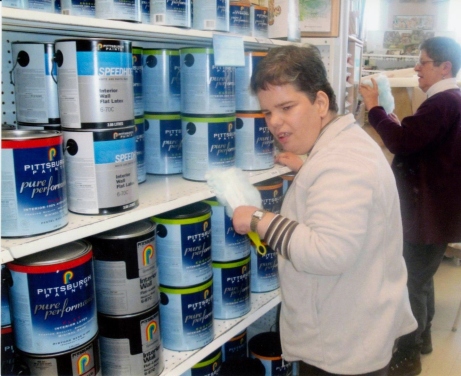
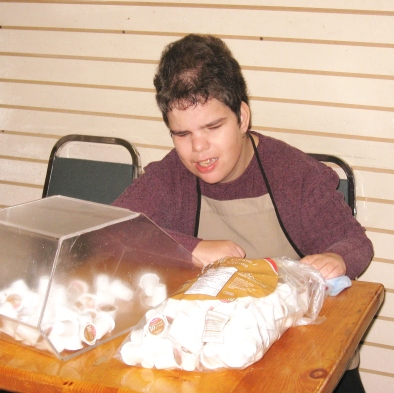
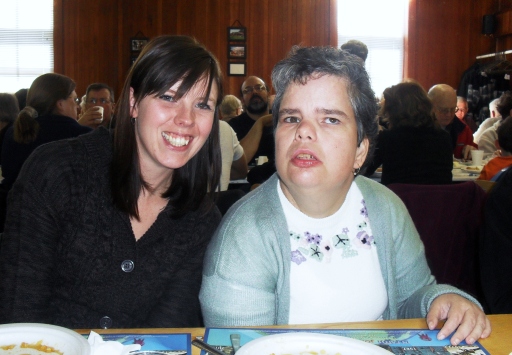

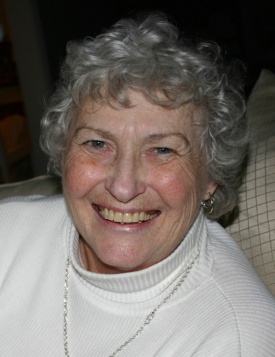

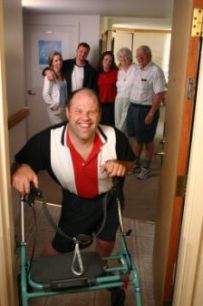

 At 32 years old, despite living with multiple disabilities and complex medical needs for more than three decades, my beautiful daughter, Lisa, has been able to ‘access’ her community as a participating citizen. She has spent meaningful moments doing what she loves: swimming, visiting her grandmother, eating at her favourite restaurant, or wheeling down the neighbourhood walking trail. She meets her responsibilities by picking up groceries for her self-contained apartment (in our home) or making copies and purchasing supplies at Staples.
At 32 years old, despite living with multiple disabilities and complex medical needs for more than three decades, my beautiful daughter, Lisa, has been able to ‘access’ her community as a participating citizen. She has spent meaningful moments doing what she loves: swimming, visiting her grandmother, eating at her favourite restaurant, or wheeling down the neighbourhood walking trail. She meets her responsibilities by picking up groceries for her self-contained apartment (in our home) or making copies and purchasing supplies at Staples. 